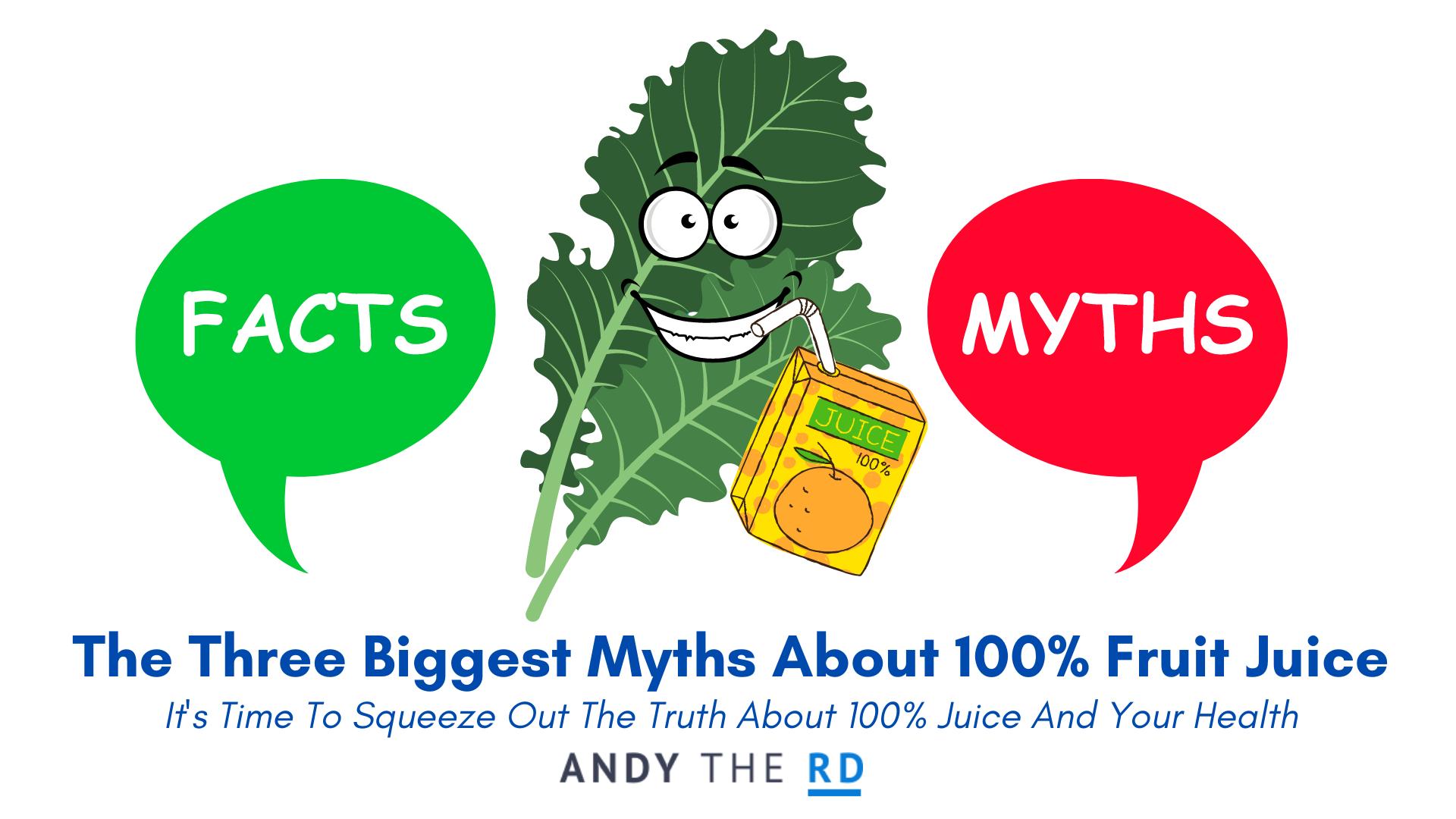The goal of today’s article is work through, or squeeze out, some of the major myths and misconceptions about 100% juice intake and the role it plays in contributing to our health.
Let’s start by identifying that 100% fruit juice means juice that is directly squeezed from a fruit and may have vitamins/minerals added (think Vitamin D/calcium enhanced orange juice).
Stigma around 100% fruit juice intake is not only unsupported by scientific evidence but also harmful to those who benefit from the inclusion of these products in their dietary pattern and who may rely on it for reasons related to economics, ease and accessibility.
Today’s article, presented in collaboration with the Canadian Beverage Association, will aim break down this stigma in an evidenced-based fashion.
Let’s get to the good stuff.
100% Fruit Juice, 100% Facts?
My Top 3 Myths:
Myth #1 – Canadians Consume “Too Much” 100% Fruit Juice
There are a number of misconceptions about 100% fruit juice, but let’s start with the notion that most people have “too much”.
In 2015, out of the total average of ~1800 ml of beverages Canadians drink per day, only ~ 75 ml came from 100% fruit juice.
This is less than 5% of total daily fluid intake, whereas plain water, by contrast, represented ~850 ml or almost 50% total intake.
Now obviously some people drink more or less 100% fruit juice then others, so let’s look next to the myths surrounding the health of those who happen to drink more.
Myth #2 – People Who Drink Juice Tend To Have Worse Overall Diets
Given its rich vitamin, mineral and antioxidant content there are few who would refute that fruit consumption is a hallmark of a strong dietary pattern and good health.
There are some, however, who are more hesitant to make this claim about 100% fruit juice.
Yet a 2019 paper out of the Nutrients journal found that those who drank 100% fruit juice tended to have increased intakes of calcium, magnesium, potassium and Vitamin D.
For those who keep up with public health data around nutrient intake, those four nutrients actually happen to be among the most likely to be underconsumed by the average Canadian.
Myth #3 – People Who Drink Juice Are At A Higher Risk Of Diabetes & Heart Disease
There is a great deal of misunderstanding around the connection between nutrient dense sugar-containing foods like fruit and 100% fruit juice and human health.
Keep in mind that fruit and 100% fruit juice contain a wide array of vitamins, minerals and antioxidants which contribute positively our wellbeing.
Sometimes people make hasty and erroneous connections between these foods and conditions like type 2 diabetes, but the best available evidence does not support these claims.
For starters, popular fruit juices, like 100% apple or orange juice, both have a glycemic index in the “low” category.
A 2017 systematic review and meta-analysis out of the Journal Of Nutritional Science found that 100% fruit juice consumption has neutral effects on various measures of blood sugar control ( A1C, insulin resistance, fasting blood sugar) which supports findings published in 2014 out of the PLoS journal which found no correlation between 100% fruit juice intake and type 2 diabetes risk.
In fact, there is evidence out of the European Journal Of Nutrition to suggest that 100% fruit juice drinkers may be at lower risk of cardiovascular disease and stroke which may be attributed to its high potassium content and the fact that potassium has a role in blood pressure lowering.
It’s useful as well to note that blood pressure medication is among the most frequently prescribed in Canada.
Final Thoughts
Myths around 100% fruit juice intake both in terms of quantity of consumption and subsequent health effects are not supported by the best available evidence.
100% fruit juice has a role to play, as part of a balanced dietary pattern, in achieving good health and for many people represents an accessible and enjoyable option.
100% juice, 100% facts!
Until next time,
Andy De Santis RD MPH



